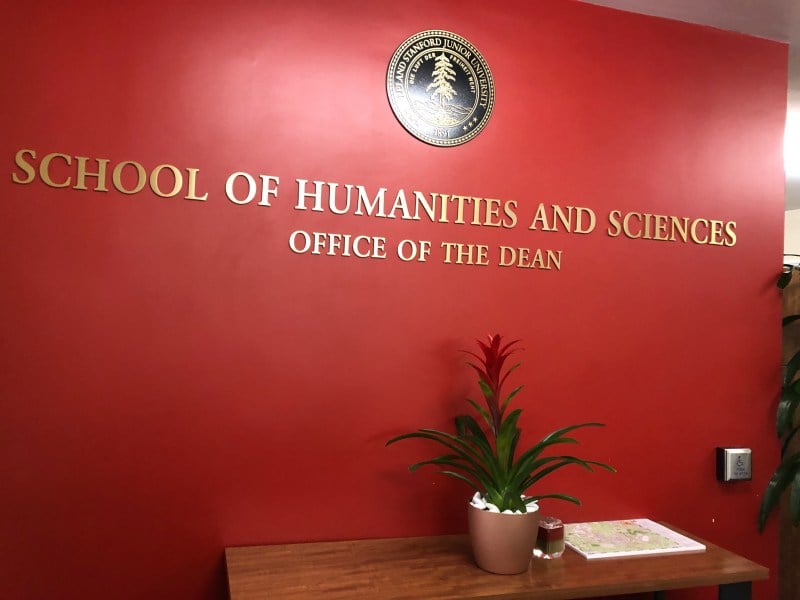A three-quarter Stanford Core program focusing on civic education and global citizenship will replace the Thinking Matters requirement for first-year students in the 2020-21 academic year, pending Faculty Senate approval. The pilot program was proposed by committee members of the First-Year Design Team.
The recommendation, shared with students by University President Marc Tessier-Lavigne one week before the start of classes, is detailed in a report from a design team of faculty members led by Senior Associate Vice Provost for Teaching Sarah Church and Stanford Introductory Studies Faculty Director Dan Edelstein. The new core implementation will not affect current students, nor will it ultimately impact students in Structured Liberal Education (SLE), the arts-focused program ITALIC, or the global-focused Education as Self-Fashioning (ESF) frosh course.
In his “Fall letter to the community,” Tessier-Lavigne described the changes as part of a vision guided by two themes: “optimism and responsibility.”
The courses in the program would aim to help students “develop the new ideas that will address the pressing issues facing our country and our planet,” he wrote. Example courses provided include “Education for Freedom” and “Citizenship in the Twenty-First Century.”
The swap is meant to engage students, especially first-years, in the liberal arts.
“This is really more of an attempt to create some guided exploration of a liberal education through these courses,” Church told The Daily.
The report detailed that STEM-oriented students find it increasingly difficult to declare competitive majors without completing the prerequisite courses in their first year.
“The problem of first-year impaction (caused by students taking a high number of prerequisite courses),” such as the math or chemistry sequence, “has only increased, in part due to the rise in the overall number of engineering majors,” the report reads.
The number of students seeking to major in STEM fields who did not have the opportunity to take AP courses has increased, according to the report. Edelstein and Church said they hope to increase accessibility among the liberal arts knowledge students have despite their academic experiences before attending Stanford.
The report further states that lower-income students interested in STEM did not have the resources to be as equipped as their more advantaged peers, “requiring them to take on even larger course loads in the first year.”
The new core aims to create a similar first-year for all students, regardless of their experiences before Stanford.
Similarly, the Core’s designers found that the 2012 transition from the erstwhile Introduction to the Humanities (IHUM) system to Thinking Matters obliged students “to fill their first-year course load with prerequisites for majors.”
“There is no indication that students are making greater use of their curricular freedom to explore interests beyond the major,” the report states.
Edelstein said the Core is intended to aid students in exploration.
“I think what’s important to remember here is that Stanford is designed to provide a liberal education to all students,” Edelstein said.
The danger of students and faculty not understanding the liberal arts focus, he added, is that the former view “breadth requirements as just boxes to check.” According to Edelstein and Church, students compromise academic exploration to maintain a higher grade point average.
“In some ways, what we’re moving to is not a larger requirement than many of our peers, but really a first-year requirement that is more intentional,” Church said.
Referring to questions surrounding the purpose of college, ethical obligations and what it means to be a global citizen, Church said, “Each of these courses has the scope to explore the questions from multiple interdisciplinary angles.”
The Stanford Core is expected to cost the University $4.7 million per year, nearly twice as much as the Thinking Matters program currently costs the University, since it will be implemented all three quarters as opposed to one quarter.
Contact Leily Rezvani at lrezvani ‘at’ stanford.edu.
